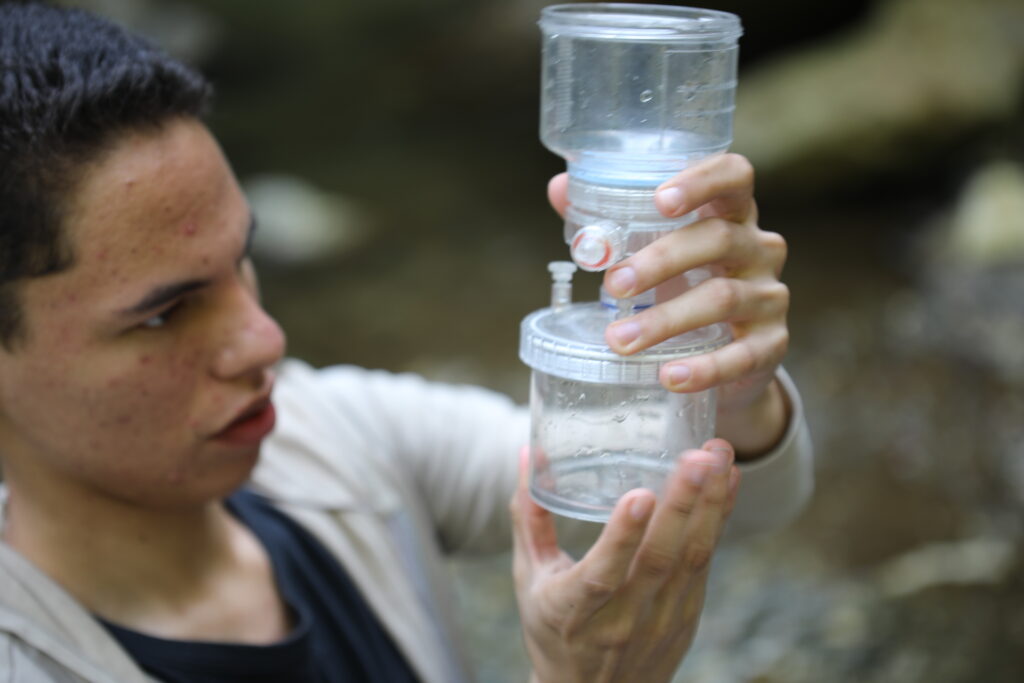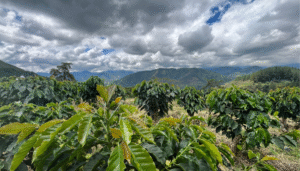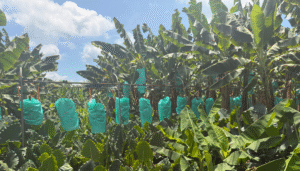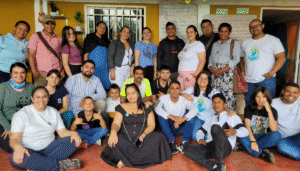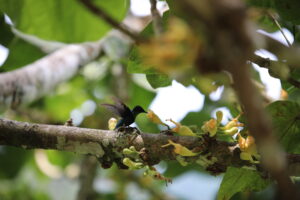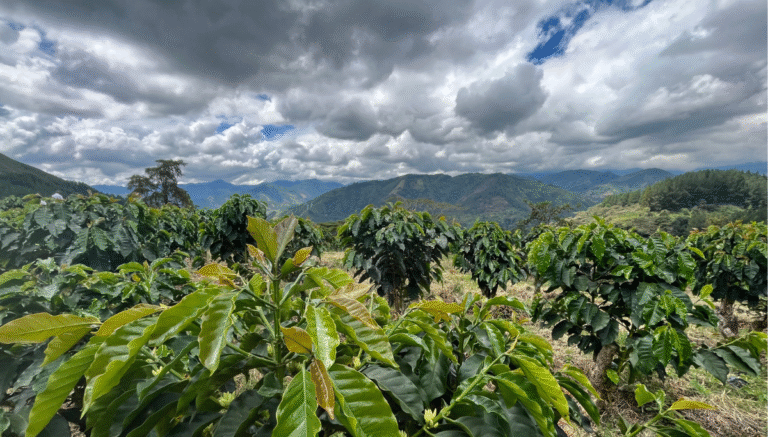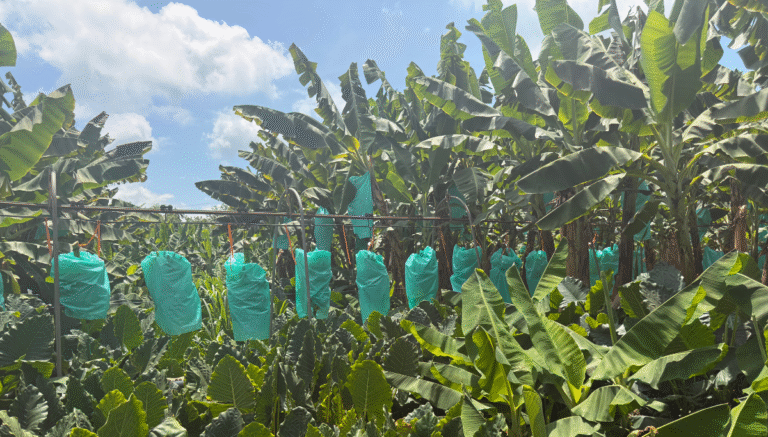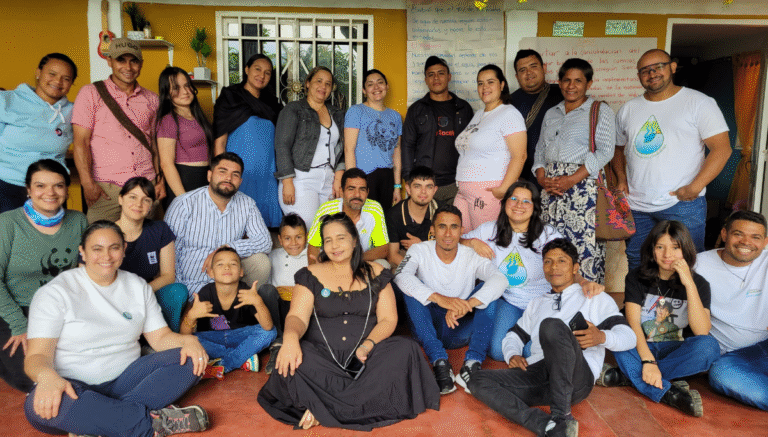Did you know that a well-managed banana plantation can support hummingbirds, raccoons, and up to 35 families of aquatic insects?
In the heart of Colombia’s Magdalena department, five farms are proving that agriculture and conservation can go hand in hand. A recent biodiversity monitoring effort led by WWF Colombia and the Universidad del Magdalena revealed improvements in water quality and an increase in species diversity compared to data collected in 2021.
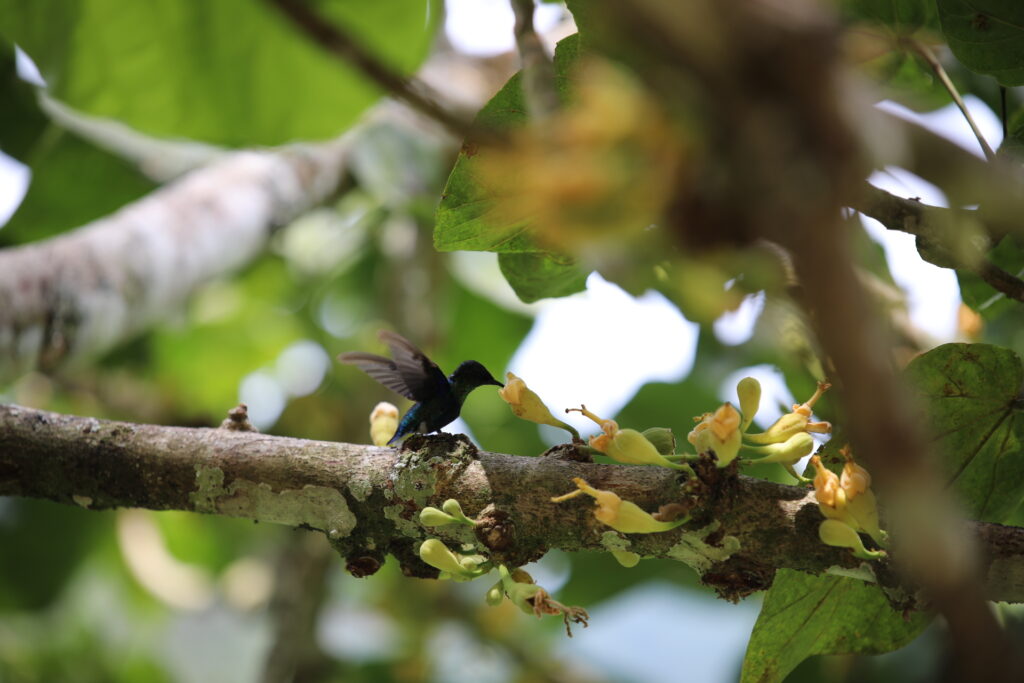
Banana production is a major agricultural activity in the region and a key driver of the Caribbean economy. In 2022, Colombia exported nearly 1.7 million tons of bananas, with 27% of the cultivated area located in Magdalena. But beyond its economic value, banana-growing landscapes also shelter rich biodiversity, much of which often goes unnoticed.
To shed light on this hidden biodiversity and promote more sustainable practices, WWF Colombia and the Universidad del Magdalena carried out field monitoring on five farms located in the lower basins of the Frío and Sevilla rivers. These rivers connect the Sierra Nevada de Santa Marta with the Ciénaga Grande de Santa Marta, one of Colombia’s most important wetlands. This study builds on earlier monitoring from 2021 and focused on water quality and the presence of wildlife in agricultural settings.
The results are promising. Water quality at the sampling points ranged from “good” to “acceptable,” showing overall improvement since the last monitoring. According to César Tamaris, a researcher at the Universidad del Magdalena, “We saw clear improvements in water quality and greater diversity of macroinvertebrates. Aquatic systems respond positively when riparian vegetation is protected and human pressures are reduced.”
One of the most remarkable findings was the presence of 35 families of aquatic macroinvertebrates; small creatures like insects, worms, and crustaceans that live in streams and rivers. These animals are excellent bioindicators of water quality, and the detection of families such as Perlidae and Calamoceratidae. Which are typically associated with healthy ecosystems, showing a positive trend.
Mammals like the crab-eating raccoon (Procyon cancrivorus) and the common opossum (Didelphis marsupialis) were also observed. These species play essential roles in the ecosystem as seed dispersers and natural pest controllers. Nectar-feeding bats; such as Glossophaga soricina and Anoura geoffroyi were also recorded, highlighting their importance in pollinating native plant species.
More than 60 bird species were spotted, including hummingbirds, bananaquits (Coereba flaveola), and seed-eaters. Some were seen feeding on banana flowers, underscoring the ecological interactions that take place even in commercial farming landscapes.
The study also revealed high diversity among terrestrial pollinators: over 50 species of bees, wasps, and butterflies (from genera like Hamadryas and Zaretis) were documented. These species not only pollinate crops and wild plants, but also serve as indicators of ecosystem health.
Beyond expanding our understanding of biodiversity in agricultural landscapes, the findings also inform practical steps for action. The study recommends conserving riparian vegetation, maintaining biological corridors between farms and patches of native forest, reducing agrochemical use, and integrating biodiversity and water monitoring into agricultural management plans.
“These results are encouraging”, says Jairo Guerrero, Water Resource Management Officer at WWF Colombia. “But the real challenge is to sustain and scale up good practices. Continued monitoring is essential if we want to understand our true impact.”
From the productive sector, Tatiana Botello, Environmental Affairs Manager at Grupo Agrovid, emphasizes the value of reliable data and the need for shared responsibility between communities, companies, and public institutions to achieve sustainable land management.
This initiative is part of a broader collaboration between WWF and German supermarket chain EDEKA, in partnership with Técnicas Baltime de Colombia S.A. (Tecbaco). Since 2014, the partnership has worked to promote sustainable banana production in Colombia and Ecuador. Advancing responsible agricultural practices, building local capacity, and supporting science based decision-making to protect biodiversity and ensure sustainable water use.
